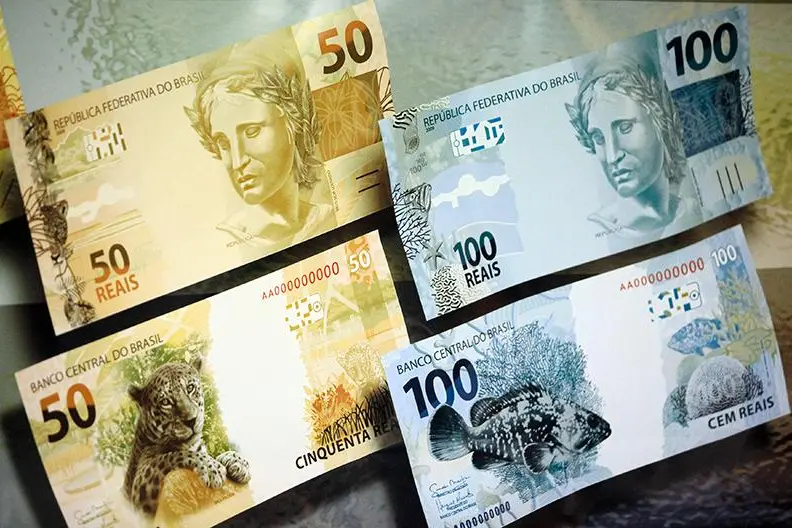PHOTO
Brazil's real rose slightly on Monday, taking some support from expectations of an economic recovery this year, while most other Latin American currencies moved little as a surge in global cases of the Delta COVID-19 variant prompted caution.
The real BRBY rose 0.2% after tumbling nearly 7% over the past eight sessions, in the wake of serious graft allegations related to vaccine procurement against the government.
A recent poll showed a majority of Brazilians support President Jair Bolsonaro's impeachment, amid growing discontent over his handling of the COVID-19 pandemic, and allegations of corruption.
The real is expected to benefit from a strong economic recovery in Brazil this year. But a laggard job market and spiking inflation could hurt its prospects, even with the central bank hiking lending rates sharply.
"We expect the ongoing recovery to strengthen into the second half of the year as the vaccination rollout continues to advance. This will benefit the sectors hit hardest by the pandemic – especially the services sector," analysts at TS Lombard wrote in a note.
"Still, we believe that the job market is likely to lag the overall recovery."
Rising iron ore prices, on expectations of more liquidity in China, also helped the real on Monday.
Broader Latin American currencies were largely unchanged, with MSCI's index rising 0.2%.
Chile's peso rose 0.6% as a central bank survey of analysts showed the economy will expand by 16.5% in June and by 11.9% in the third quarter this year.
But despite the expectations of a strong rebound, concerns over the drafting of the country's new constitution have held back Chilean assets in recent months.
The government also raised its inflation forecast for 2021, which has been a common theme in markets as more economies reopen with a bang from COVID restrictions.
Mexico's peso and Colombia's peso fell slightly, tracking declines in oil prices as markets feared a hit to demand from the Delta variant.
Latin American stocks rose in early trade, but kept to a tight range established over the past few sessions, as investors awaited more solid cues on global economic growth.
In Cuba, thousands of civilians joined street protests from Havana to Santiago on Sunday in the biggest anti-government demonstrations on the Communist-run island in decades.
Mexican President Andres Manuel Lopez Obrador called for an end to the U.S.-Cuba economic embargo to help its people, in light of the protests.
(Reporting by Ambar Warrick; Editing by Andrea Ricci) ((Ambar.Warrick@thomsonreuters.com; +91-80-6182-2837;))





















